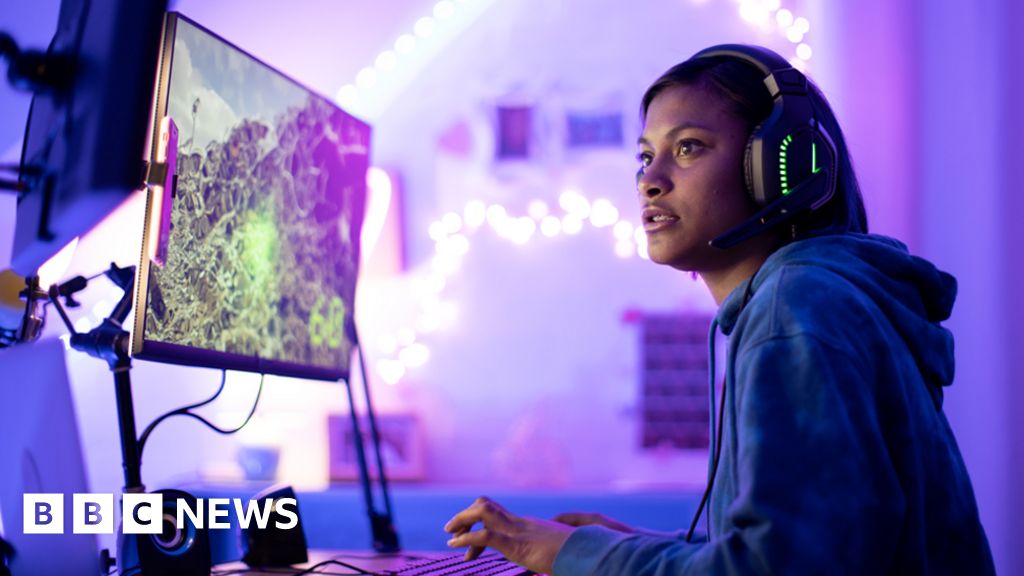Hell, John Fogerty got sued for sounding like John Fogerty.
Not true.
Follow along with the video below to see how to install our site as a web app on your home screen.
Note: This feature may not be available in some browsers.
Hell, John Fogerty got sued for sounding like John Fogerty.
These do not exist in a vacuum. It's all related.What's the most important aspect for you? Production and consumption? Or the human experience?
Isn't it, though?Not true.
AI is going to completely ruin school coursework just like it's going to ruin software development. Which is to say, bad kneejerk reactions to AI are probably whats making it worse, rather than thinking through how it should be used properly.

There was relief among OpenAI staffers that they did not have to jump ship to Microsoft, with Business Insider reporting that several employees, both former and current, have stepped forward, stating that joining the software giant was only a bluff in an attempt to reinstate Altman back to the position of CEO. One major reason for not joining Microsoft was that OpenAI employees would miss out on a ton of perks, ranging from a lucrative salary to equity in the company and a tender offer.
Base salaries at OpenAI typically start from $300,000, with an equity package worth $2 million over four years, with some workers getting much more. Even though Microsoft agreed to hire all OpenAI employees at the same compensation level, there was only a verbal agreement involved and nothing that was legally binding at the time. One employee also believed that it was unlikely that Microsoft would pay departing staff members for the equity that they would have lost had they joined the technology giant.
The tender offer would also have been canceled, and that equity would have been worth nothing. A current OpenAI employee says that no one wanted to work at Microsoft, calling the firm the slowest of all the major companies, believing that OpenAI functioned in the entirely opposite fashion.
One employee said that Altman is not the best CEO, but millions of dollars and equity were at stake, so if OpenAI’s valuation were to tank, it would financially affect those employees too. The situation was not healthy at Microsoft either, with hundreds of employees reportedly furious that the company promised to match the salaries for several hundred OpenAI employees.
They almost bluffed around and found out.
Most OpenAI Employees Did Not Want To Work For Microsoft, As It Would Have Meant Losing Out On Several Benefits, Claims New Report
A risky bluff played by OpenAI employees actually worked out in their favor, as they did not want to work for Microsoft in the first placewccftech.com
The Chinese company Kepler Exploration Robot Company has introduced its latest humanoid robot, positioning it as a direct competitor to Tesla's Optimus robot by Elon Musk. The effectiveness of the first robotic police officers has been demonstrated, and soon they will be able to patrol the streets of major metropolises on a mass scale. Shift Robotics has unveiled next-generation robotic footwear, allowing people to move significantly faster due to an accelerated pace.
While the company expects Moonwalkers X to help save hundreds of hours in travel time, making people more efficient, there is no price tag attached to these shoes quite yet.
However, to put things in perspective, the original Moonwalkers were priced at $1,399 and were sold via a Kickstarter campaign that helped the company raise over $300,000 in no time. With all the improvements, the Moonwalkers X could only be priced higher, making them out of bounds for a regular user.

"I used to work for PlayStation and the last game that I worked on, just production alone cost us $220 [£176m], and then you double that for marketing, and you are in half a billion dollars for every game that you put out there, which is a bit unsustainable for most companies."
He believes that artificial intelligence (AI) will play a crucial role in keeping the soaring costs of game production down, and save video game designers vital time by automating repetitive tasks.
His company, Promethean AI offers developers a set of tools to craft their own virtual worlds. Mr Maximov hopes to disrupt the way games are currently produced.
"What we're trying to do is replace that with a system that can learn directly from artists, so that artists can be the authors of their own automation."
Humans will still play a key role in the production process. AI will work hand in hand with the human and enable them to be more creative.
